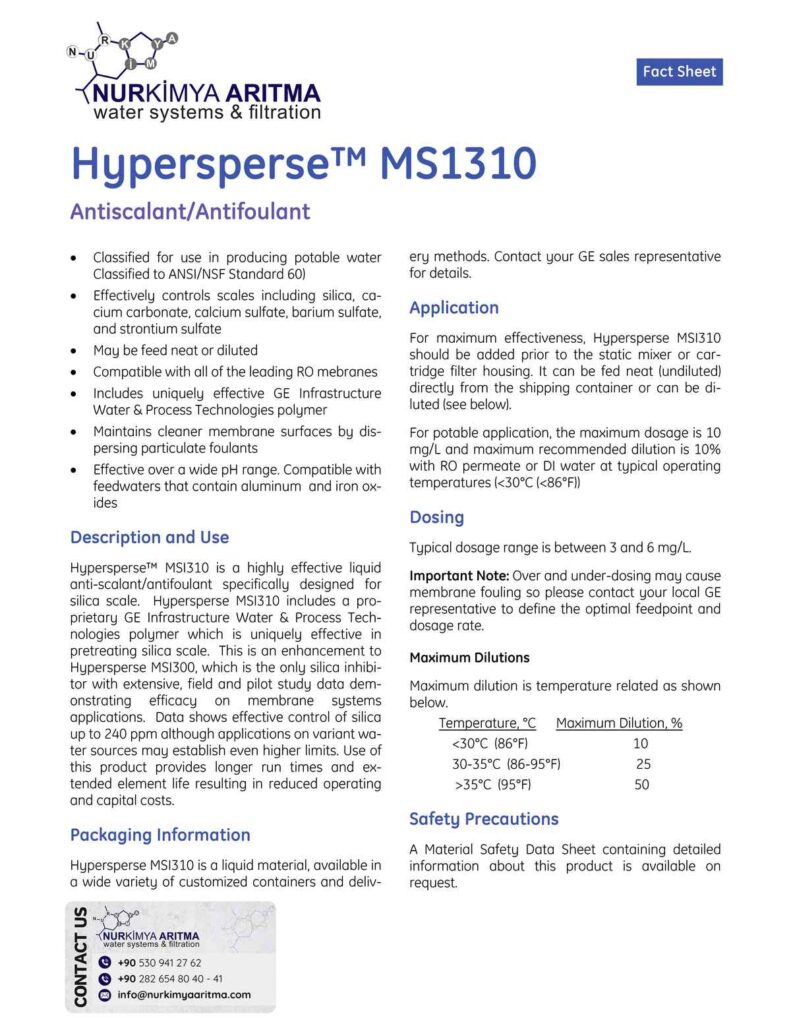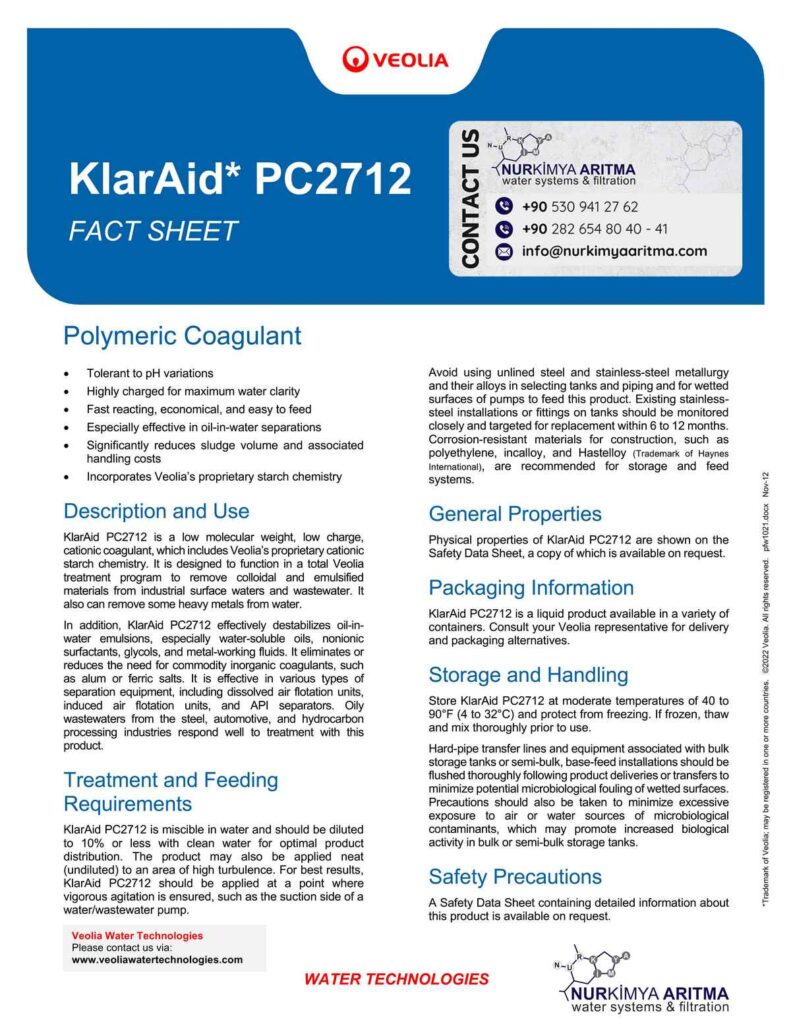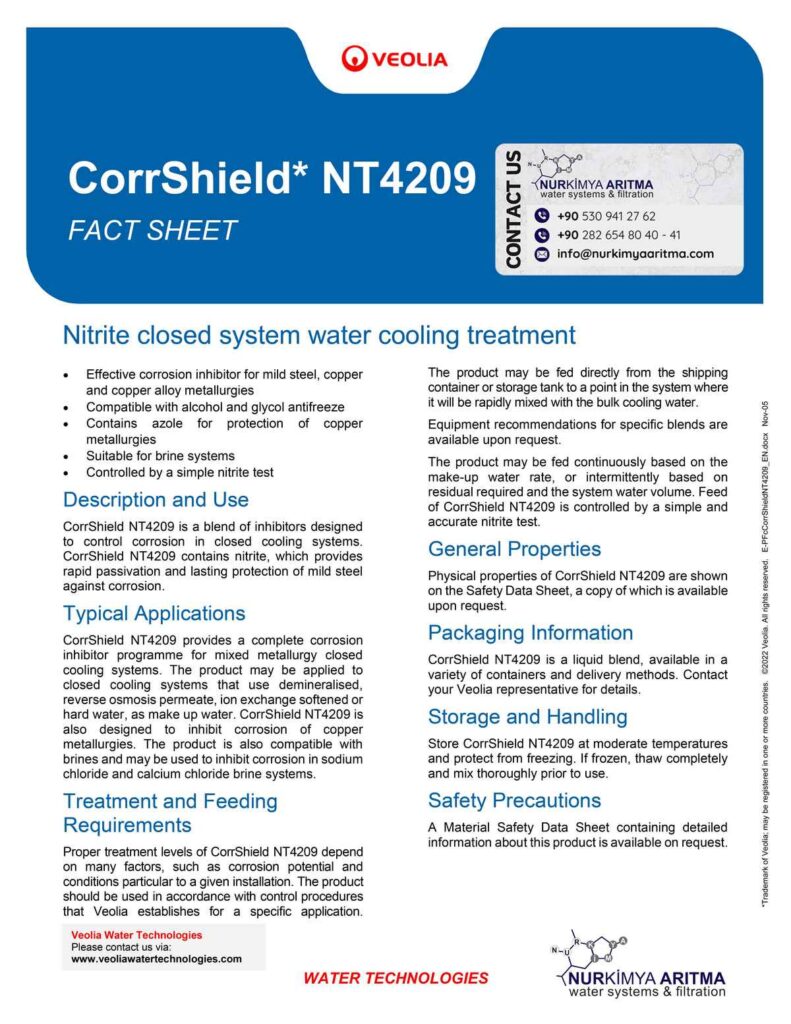- Classified for use in producing potable water Classified to ANSI/NSF Standard 60)
- Effectively controls scales including silica, ca- cium carbonate, calcium sulfate, barium sulfate, and strontium sulfate
- May be feed neat or diluted
- Compatible with all of the leading RO mebranes
- Includes uniquely effective GE Infrastructure Water & Process Technologies polymer
- Maintains cleaner membrane surfaces by dispersing particulate foulants
- Effective over a wide pH range. Compatible with feedwaters that contain aluminum and iron oxides
Hypersperse™ MSI310 is a highly effective liquid anti-scalant/antifoulant specifically designed for silica scale. Hypersperse MSI310 includes a proprietary GE Infrastructure Water & Process Technologies polymer which is uniquely effective in pretreating silica scale. This is an enhancement to Hypersperse MSI300, which is the only silica inhibitor with extensive, field and pilot study data demonstrating efficacy on membrane systems applications. Data shows effective control of silica up to 240 ppm although applications on variant water sources may establish even higher limits. Use of this product provides longer run times and extended element life resulting in reduced operating and capital costs.
Hypersperse MSI310 is a liquid material, available in a wide variety of customized containers and delivery methods. Contact your GE sales representative for details.
For maximum effectiveness, Hypersperse MSI310 should be added prior to the static mixer or cartridge filter housing. It can be fed neat (undiluted) directly from the shipping container or can be diluted (see below).
For potable application, the maximum dosage is 10 mg/L and maximum recommended dilution is 10% with RO permeate or DI water at typical operating temperatures (<30°C (<86°F))
Typical dosage range is between 3 and 6 mg/L.
Important Note: Over and under-dosing may cause membrane fouling so please contact your local GE representative to define the optimal feedpoint and dosage rate.
Maximum dilution is temperature related as shown below.
Temperature, °C Maximum Dilution, %
| <30°C (86°F) | 10 |
| 30-35°C (86-95°F) | 25 |
| >35°C (95°F) | 50 |
A Material Safety Data Sheet containing detailed information about this product is available on request.




